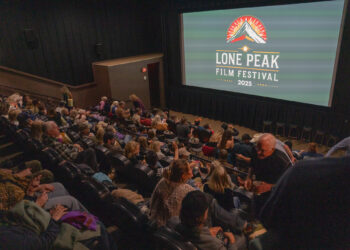The grass is greener … and safer!
By Eric Vinje PLANET NATURAL GARDEN SUPPLY
Lawns may have been invented in Europe, but they’ve reached their apotheosis in North America. For those in the U.S. of A, that green, green grass ranks right up there with apple pie, backyard barbecues and softball.
The problem with the perfect lawn is that it wreaks havoc on your wallet and the environment. Between 30 and 40 million acres of land in the U.S. are devoted to turfgrass, and Americans collectively spend approximately $40 billion annually on seed, sod and chemicals.
Much of that money goes to products that “help” grass only in the most superficial ways and that degrade the soil, pollute any water they reach, and pose health threats to humans, their pets, and any wildlife in the area, including birds. As people become aware of these facts, attitudes towards conventional fertilizers and pesticides are beginning to change.
In Canada, more than 130 communities and two entire provinces have passed laws severely restricting pesticide use, so homeowners and city park services are going organic perforce. In the U.S., where municipalities in many states lack the power to pass such comprehensive laws, a number of cities and towns have restricted the use of pesticides on school grounds or in parks.
Many of us have inherited our lawns and our ideas about how to care for them from an earlier era, when pesticides seemed safe and water inexhaustible. Since the mid-1950s, when the ideal of the weed-free, carpet-like lawn took shape, pesticides – meaning insecticides, herbicides and fungicides – have often been used routinely and preemptively, with the result that synthetic chemicals are often overused on lawns. In fact, one 1996 survey found that more pesticides are used on turfgrass than on any other ornamental.
We’ve also inherited the grass itself. Look around most towns and you’ll see Kentucky bluegrass, which makes for a beautiful lawn but requires enormous amounts of water, hurting both the environment and your pocketbook. A sustainable landscaping presentation by the U.S. Environmental Protection Agency estimates that watering lawns accounts for 30 – 60 percent of summer water consumption.
There are other costs of planting a grass that isn’t well suited to the land or its rainfall. We end up using tons of soil amendments, fertilizers and pesticides to keep things looking good. (Using tons here is not just an expression. Estimates vary, but Americans dump approximately 70 million tons of fertilizer and 70-90 million pounds of pesticides on their lawns each year.)
Yet lawns, combined with gardens and other landscaping, do a lot of good. They muffle traffic and other noise pollution, and like all green plants, help reduce carbon dioxide levels. They act as filters, removing pollutants from the air we breath. And nothing beats grass as a place for kids to play.
Going organic doesn’t mean you have to give up your lawn, and it certainly doesn’t mean that you have to give up the rest of your life tending for your lawn. It means planting what will do well in your climate, watering deeply but infrequently, and avoiding the use of dangerous and expensive chemical fertilizers and pesticides.
How green is your lawn?
• According the EPA, a gas-powered push mower emits as much hourly pollution as 11 cars, and a riding mower emits as much as 34 cars.
• Lawn and garden equipment emits 5% of U.S. volatile organic compounds, which cause health problems and contribute to ozone formation.
• A gas mower emits as many hydrocarbons in one hour as a car driven 20 miles.
• 40-60% of nitrogen from fertilizer runs off or leaches away, ending up in ground or surface water, including wells.
• 60-70 million birds die from pesticide poisoning each year in the U.S. alone.
• 30% of water consumed on the East Coast waters lawns; 60% on the West Coast.
• Close to 70 million pounds of pesticides (including herbicides) are applied to U.S. lawns each year. This is approximately ten times the amount applied to American farmland, acre for acre.
• As of 2004, approximately 70 million tons of fertilizer were used on U.S. lawns each year.
Eric Vinje is owner of Planet Natural Garden Supply, which offers lawn and landscape products to help you create the healthiest and best-kept outdoor environment possible.













